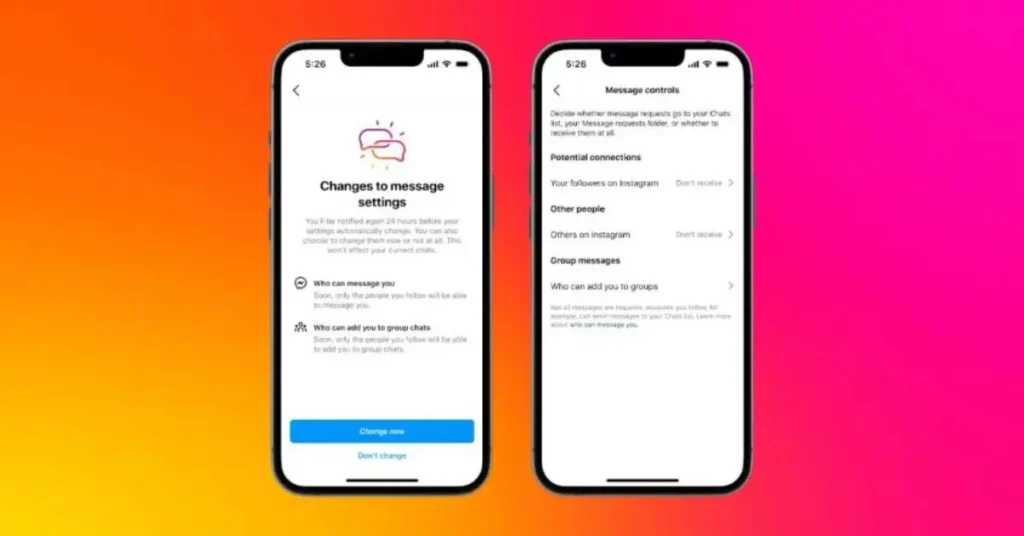We want teens to use our apps in a way that is safe and appropriate for their age. We’ve spent over a decade making rules and tools to deal with material and behavior that breaks our rules. We’ve also added more than 30 tools and features to help teens and their parents.
We told teens earlier this month about new steps we were taking to make it harder for them to see possibly inappropriate content on Instagram and Facebook. We were also adding new ways to remind teens to close Instagram at night. Here are some more steps we’re taking today to help protect teens from unwanted contact and make it easier for parents to control what their teens do online.
Teens will have stricter settings for private messaging
We don’t let adults over 19 message teens who don’t follow them, and people can only send one text-only direct message (DM) to someone who doesn’t follow them. This is to help protect teens from getting unwanted contact on Instagram.

We’re adding another step today to help protect teens from unwanted contact: by default, they won’t be able to receive direct messages from anyone on Instagram who they don’t follow or are linked to, even other teens.
Teens will only be able to be added to group chats or sent messages by people they already follow or are linked to. This makes teens and their parents feel even safer that they won’t get messages from people they don’t know. To change this setting, teens with controlled accounts will need to get permission from their parents (see below for more).
Read more: Why Was The Approved Acquisition Of Whatsapp By Facebook Valued At $21.8 Billion?
All teens younger than 16 (or 18 in some countries) will have to use this setting by default. People who are already on Instagram will see a message at the top of their Feed letting them know that these changes are being made to their message settings.
Teenagers’ default settings on Messenger will also be changed. Now, people under 16 (or 18 in some countries) will only get texts from Facebook friends or people they know through phone contacts, for example.
We’re also going to add a new feature that will stop kids from seeing unwanted or possibly inappropriate pictures in messages from people they already know. This will also make them less likely to send these kinds of pictures themselves. After the end of the year, we’ll have more to say about this function, which will also work in encrypted chats.
helping parents control what their teens do online
We added parental controls to Instagram for the first time in March 2022, and we’ve kept adding new tools to help parents be more involved in their teens’ online lives since then. For example, parents can set time limits and plan breaks for their teens, see when their teens block or share that they’ve reported someone, and know when their teens change their settings.
Parents who are supervising their teens (under 16) will now be asked to accept or deny their requests to change their privacy and safety settings to a less strict state. They will no longer just be told about the change. Parents will be notified if their teen under their supervision tries to change their account from private to public, their Sensitive Content Control from “Less” to “Standard,” or – new – their DM settings to hear from people they’re not already following or connected to. The parent will then have the option to approve or deny the request.
Just like all of our other parental supervision tools, this new feature is meant to help parents and kids talk to each other offline while they figure out what’s best for their family and their online lives.
Larry Magid, CEO of ConnectSafely, said:
“Empowering parents to approve or deny requests to change their teen’s default safety and privacy settings gives parents the tools they need to help protect their teens, while at the same time respecting their teens’ privacy and ability to communicate with their friends and family.”
